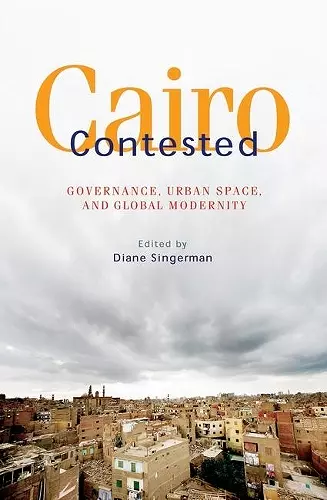Cairo Contested
Governance, Urban Space, and Global Modernity
Format:Paperback
Publisher:The American University in Cairo Press
Published:15th Oct '11
Currently unavailable, our supplier has not provided us a restock date

A new paperback edition of the pioneering work of the Cairo School of Urban Studies
This cross-disciplinary, ethnographic, contextualized, and empirical volume explores the meaning and significance of urban space, and maps the spatial inscription of power on the mega-city of Cairo. Suspicious of collective life and averse to power-sharing, Egyptian governance structures weaken but do not stop the public's role in the remaking of their city. What happens to a city where neo-liberalism has scaled back public services and encouraged the privatization of public goods, while the vast majority cannot afford the effects of such policies? Who wins and loses in the "march to the modern and the global" as the government transforms urban spaces and markets in the name of growth, security, tourism, and modernity? How do Cairenes struggle with an ambiguous and vulnerable legal and bureaucratic environment when legality is a privilege affordable only to the few or the connected? This companion volume to Cairo Cosmopolitan (AUC Press, 2006) further develops the central insights of the Cairo School of Urban Studies.
"[A] substantial contribution to the study of urban governance in the Middle East."—Review of Middle East Studies
“An excellent pioneering endeavor . . . . This is the fresh air of academic freedom! For any student of the Middle East this is, indeed, a very valuable addition.”—Choice
"This is how social science should be done. The Cairo School's cosmopolitanism from below is enormously important because it is everyone s cosmopolitanism: the global capitalism of shirt and shibshib manufacture and of those who wear them. Their work shows the intellectually and politically generative power of ordinary Egyptians and the importance of intensely empirical qualitative analysis for understanding politics. The Cairo School doesn't use theory it generates theory, for theory grows out of the particular."—Anne Norton, University of Pennsylvania, on Cairo Cosmopolitan
ISBN: 9789774165009
Dimensions: unknown
Weight: 883g
536 pages